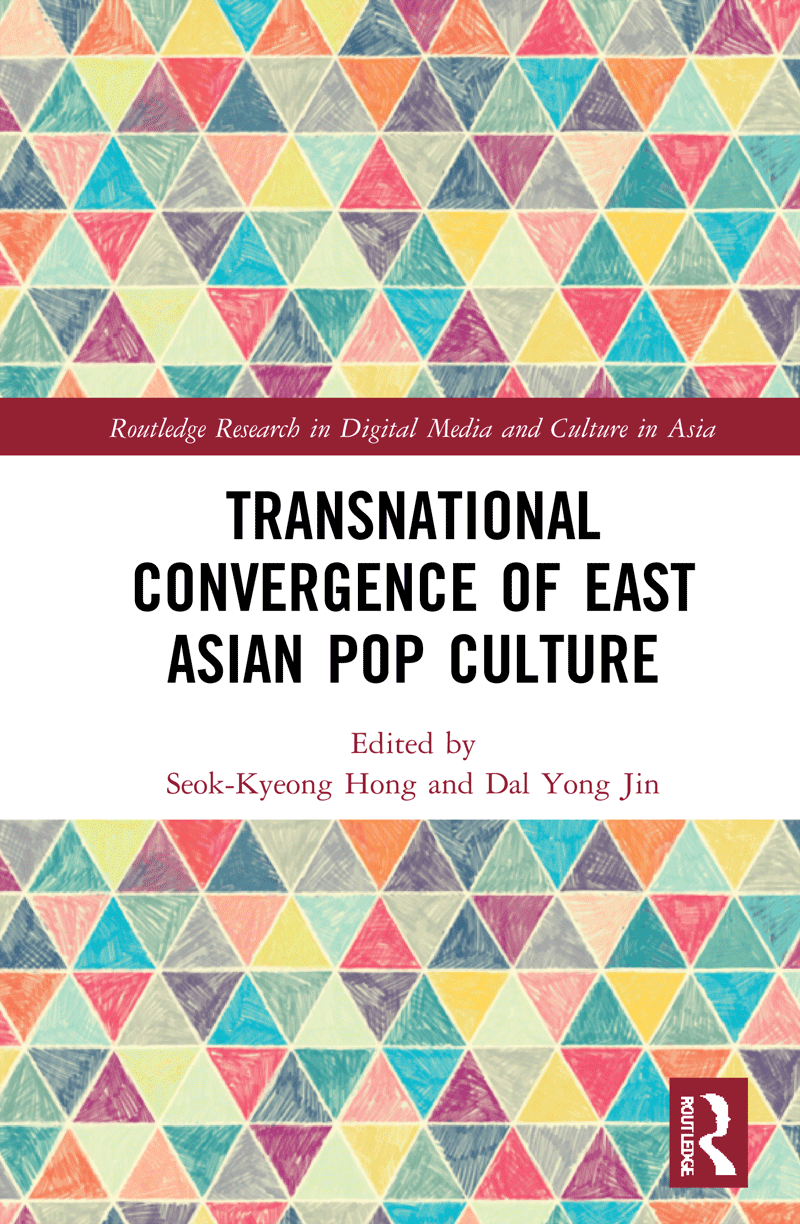
Transnational Convergence of East Asian Pop Culture

- Editors: Seok-Kyeong Hong and Dal Yong Jin
- Publication Date: March / 2021
- Publisher: Routledge
Book Description
This book observes and analyzes transnational interactions of East Asian pop culture and current cultural practices, comparing them to the production and consumption of Western popular culture and providing a theoretical discussion regarding the specific paradigm of East Asian pop culture.
Drawing on innovative theoretical perspectives and grounded empirical research, an international team of authors consider the history of transnational flows within pop culture and then systematically address pop culture, digital technologies, and the media industry. Chapters cover the Hallyu—or Korean Wave—phenomenon, as well as Japanese and Chinese cultural industries. Throughout the book, the authors address the convergence of the once-separated practical, industrial, and business aspects of popular culture under the influence of digital culture. They further coherently synthesize a vast collection of research to examine the specific realities and practices of consumers that exist beyond regional boundaries, shared cultural identities, and historical constructs.
This book will be of interest to academic researchers, undergraduates, and graduate students of Asian media, media studies, communication studies, cultural studies, transcultural communication, or sociology.
Acknowledgments
This book was generated out of a program supported by the Research Grants for Asian Studies funded by Seoul National University Asia Center (SNUAC). Between 2016, the year of the beginning, and 2021, the year of the publication, several seminars and meetings have deepened the initial research questions. We thank the participant researchers for their perseverance and enthusiasm as well as the participants of seminars who enriched the collective making of thoughts. I (Seok-Kyeong Hong) am specially indebted to my graduate students. They showed an immense interest on this book and stimulated me through their encouragements and participation in reflections on tle cultural dynamics in the East Asia. Special gratitude should go to Professor Dal Yong Jin. Without his endeavors I am not sure if this book would have come into being or be of high quality. I started this book project; he finished it. T (Dal Yong Jin) want to express my thanks to Professor Seok-Kyeong Hong who led the project. Without her academic leadership and vision, this book could not have been published.
We also acknowledge that early versions of two chapters of this book appeared in two different journals. One is Chapter 9, which was originally published with the title of “Platform imperialism in the networked Korean society: a critical analysis of corporate sphere,” in Asiascape: Digital Asia (2017) 4: 209-232. The other is Chapter 12, which was originally published with the title of “A tail that wags the dog? Cultural industry and cultural policy in Japan and South Korea,” in the Journal of Comparative Policy Analysis: Research and Practice (2011) 13:3: 307-325.
